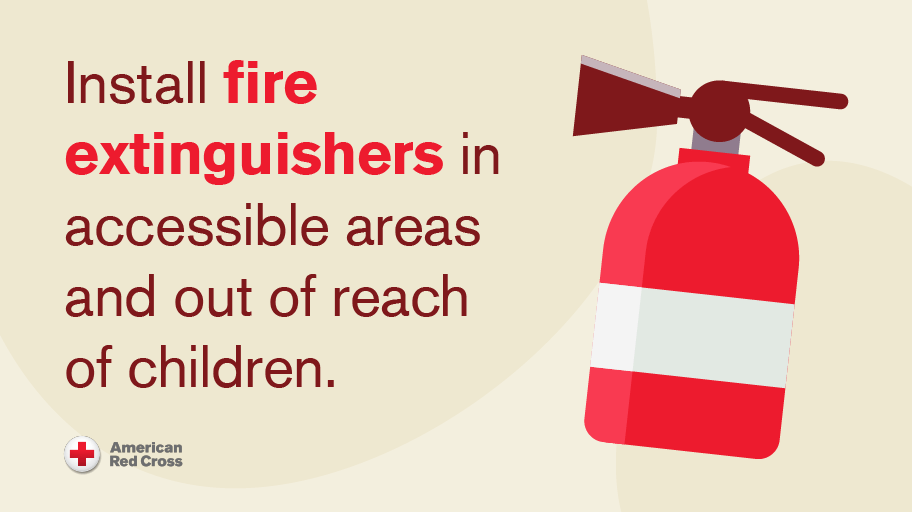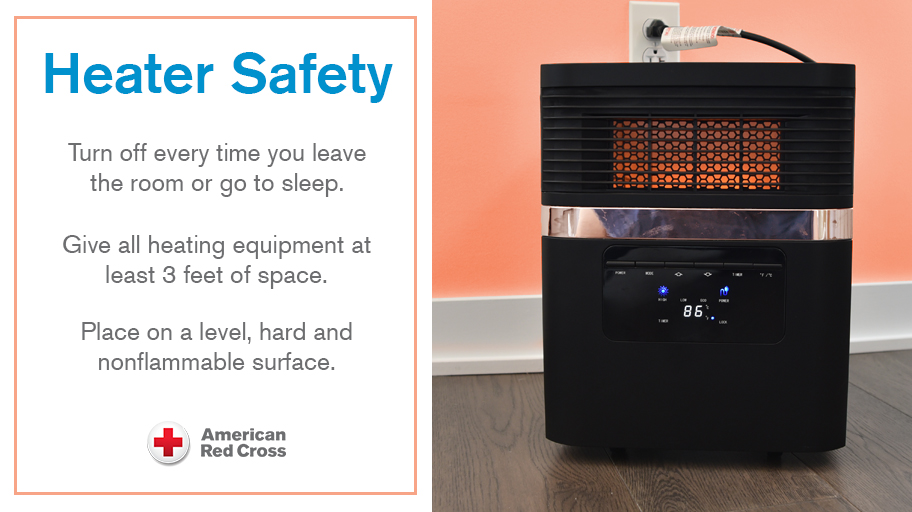By Chris Chmura, American Red Cross volunteer
Luckily, our Northeast Ohio winters have been pretty mild over the past few years. Although, we are currently headed into some very cold weeks with local news reporting temperatures with daily highs of low 20s, teens and single digits at night. So now is a good time to review how you plan to keep your home warm during the remainder of the winter and to take note of some statistics and American Red Cross tips.
- As many of us stay close to home, we are spending more time cooking. Be careful because the number one cause of U.S. home fires is cooking, according to the National Fire Protection Association.
It’s cold outside and many may be resorting to alternate sources of heat to keep your home warm. Be cautious since heating sources are the second leading cause of home fire deaths. We recently wrote about space heaters in our blog: https://nohredcross.org/tag/space-heaters/.

The American Red Cross offers these steps to help keep you and your loved ones safe:
- Does your home have a fire extinguisher that is not expired, in an easily accessible and well known l[1] ocation?
- Have furnaces, chimneys, fireplaces, wood and coal stoves inspected, cleaned and maintained to get you safely through the rest of our Ohio winter.
- If using a space heater, look for a model that shuts off automatically if the heater falls over. Place the heater on a level, hard and nonflammable surface in the home. Get into a daily routine of inspecting your heater’s cord, power source, and free of items that can catch fire.
- Keep all potential sources of fuel like paper, clothing, bedding, curtains or rugs at least three feet away from space heaters, stoves or fireplaces.
- Portable heaters and fireplaces should never be left unattended. Turn off space heaters and make sure any embers in the fireplace are extinguished before going to bed or leaving home.
- Keep children and pets away from space heaters.

- Cut down on heating costs. Insulate the home by installing storm windows or covering the inside of windows with plastic to keep cold air out.
- Never use a cooking range or oven to heat your home.
- Be very alert of safely using temporary construction propane heaters to heat your home. Review your heater’s safety manual for key information on operation. The number one issue is carbon monoxide buildup.
- Keep fire in your fireplace by using a glass or metal fire screen large enough to catch sparks and rolling logs.
- Test batteries in smoke and carbon monoxide detectors.
- Develop a fire escape plan and practice it with everyone who lives in the home. Don’t forget to include your pets in your plan!
- The American Red Cross store has a wide variety of tools, guides and emergency kits to help you be prepared. Check out the items at https://www.redcross.org/store.
COOKING SAFETY
- Keep an eye on what you fry! Never leave cooking food unattended. If you must leave the kitchen, even for a short period of time, turn off the stove. Keep a clean cooking area because oil can catch fire very easily.
- Move items that can burn away from the stove. This includes dishtowels, bags, boxes, paper and curtains. Also keep children and pets at least three feet away.
- Avoid wearing loose clothing or dangling sleeves while cooking.
- When frying food, turn the burner off if you see smoke or if the grease starts to boil. Carefully remove the pan from the burner.
- Keep a pan lid or a cookie sheet nearby. Use it to cover the pan if it catches on fire. This will put out the fire. Leave the pan covered until it is completely cooled.
- Turn pot handles to the back of the stove, so no one bumps them or pulls them over.
- Use a timer to remind yourself that the stove or oven is on. Check the kitchen before going to bed or leaving home to ensure all stoves, ovens and small appliances are turned off.

The Red Cross responds to more than 60,000 disasters every year and most of these are home fires. In a typical year, home fires kill more people in the United States than all other natural disasters combined. Please take these two steps now to help keep your household safe: Check your smoke alarms every month and practice your home fire escape plan at least twice a year.
Visit redcross.org/fire for more information and download the free Red Cross Emergency app (search “American Red Cross” in app stores).
Edited by Glenda Bogar, American Red Cross volunteer
